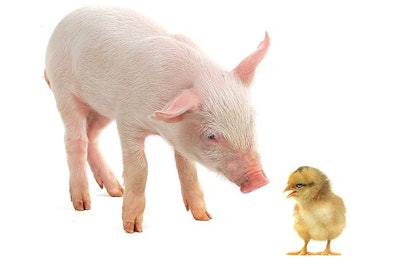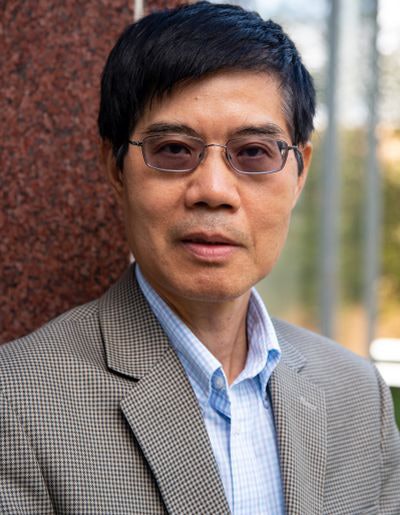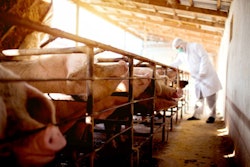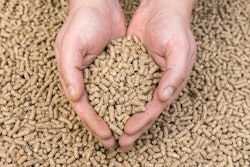
Award for work on phytase should help attract more students to agriculture, researcher says.
Agriculture may not be the first industry to come to mind when people talk about inventions and inventors. But one of the instrumental researchers behind the development of phytase thinks it should be.
Xingen Lei, a professor of animal science at Cornell University, will be formally inducted as a Fellow of the National Academy of Inventors this June in recognition of his work on phytase, which he helped to commercialize at a time when use of the enzyme was largely restricted to academic circles. Cornell estimates that Lei’s work has impacted some 1.3 billion pigs and 100 billion chickens, cutting costs and reducing emissions for livestock production, by making phytase available for use in commercial animal feed.
 Xingen Lei
Xingen Lei“Dr. Lei’s pioneering and internationally recognized research program in animal nutrition resulted in inventions that directly impacted industry practice and benefited animal production and the environment,” Alice Li, executive director of Cornell’s Center for Technology Licensing, said in a statement. “He is most deserving of this honor; his dedication and contribution to animal nutrition and environmental sustainability are exceptional.”
Lei, whose work with enzymes and poultry nutrition is ongoing, hopes the honor will serve to inspire young scholars to consider a career in animal science.
“It’s great to be recognized because I work in agriculture and animal production, and it’s great stimulation for young people in my field,” Lei said. Far from being on the defensive, he said, today’s animal science researchers are collaborating with other disciplines such as data science and engineering to tackle some of today’s biggest challenges, including climate change.
Lei began working with phytase while working on his Ph.D. at Michigan State University. At the time, he recalled, phosphorus was the third most expensive ingredient in animal feed, and a research team at Michigan State was experimenting with phytase to determine whether it could make phosphorus more readily digestible. After he graduated in 1993, Lei took a postdoctoral position at the University of Missouri, where he received training in molecular biology, before landing a faculty position in 1995 at Cornell.
Once he arrived at Cornell, Lei said, he resumed work on the phytase research almost immediately, applying for his first grant within two weeks. First-generation phytase, extracted from a fungus, was already available by then, but Lei believed it could be possible to extract a cheaper, more effective enzyme from bacteria.
Lei’s bacterial phytase technology was licensed to a commercial collaborator and achieved FDA approval for use as a feed ingredient within 10 years. But the work of innovation in animal nutrition is far from over, Lei said.
“Phytase has been really effective,” he said. “But we still have a huge issue about protein. We use soybean meal, sometimes fishmeal, and those are high-quality proteins that somewhat compete with human consumption. There are some low-quality proteins that humans cannot digest … we need to find a way to recycle those.”
Climate change, Lei said, is also a major concern for the industry, and another exciting body of research is looking at means of engineering healthier animal products for human consumption. And while he continues to research enzymes that may be key to unlocking proteins from sources unfit for human consumption, such as chicken feathers, much of his work now is also focused on inspiring the next generation to consider careers in sustainable agriculture and food production.
“Animal scientists can play a major role in global food security and human health, as well as control of climate change,” Lei said. And the next generation of researchers, he said, is well on its way to tackling these problems.












